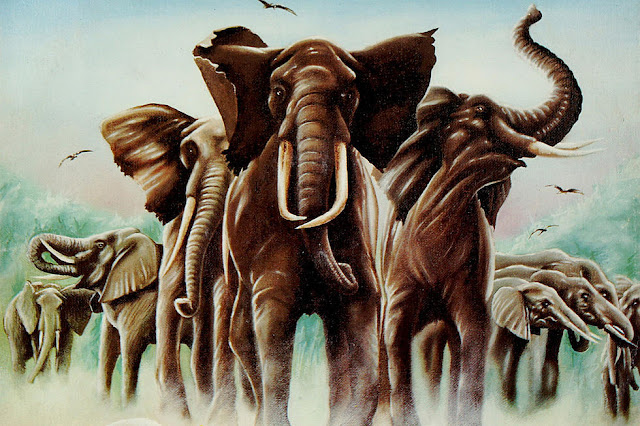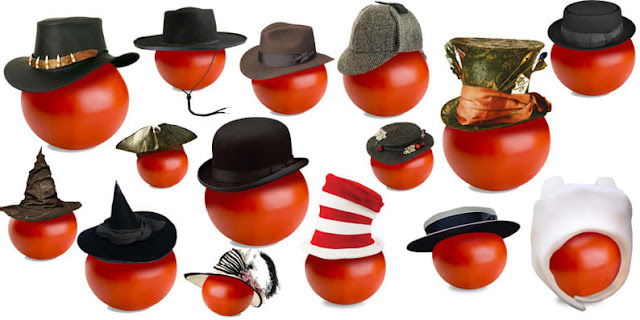Father Coughlin and the Invention of 'Us'
In 1938, during the night known to us now as Kristallnacht, German and Austrian Jewish businesses were identified, targeted and destroyed in a co-ordinated attack. The incumbent Nazi leadership was inspired by the violent pogroms of 19th century Russia. With the benefit of hindsight, we now know that this catalysed the making of the Jew, all over Europe and certainly not only in Germany and Austria, as Untermensch - they were adjudged as inferior, docile and worthy of eradication. But in this action of, what was callously referred to as, "sweeping up," the Nazi Sturmabteilung also "swept up" Roman Catholic, Protestant, Dissenting and others' businesses, livelihoods and, even, lives.
Of this despicable act of state-sanctioned brutality, Father Coughlin, a prominent right-wing radio personality from the United States remarked: "Jewish persecution only follows after Christians themselves are persecuted."
You don't need me to deconstruct the moral weight of that statement. But what remains, perhaps most prominently, today is a brutal, severe, vomit-inducing hangover from one of Father Coughlin's more damaging views on man and God: duty is the essence of manhood. Within this worldview, the SA's duty to remove Jews justified the collateral damage of churches set alight, and men, women and children of all faiths running around Danzig in sheer panic, carrying suitcases and their hats in-hand. The SA were "manly" - they were "dutiful." They were armed, suffused with Christian, muscular virtue, and held a strict code of chivalric honour, so much so that Ernst Rohm, the SA leader from 1931-4, was purged and killed for, primarily, being a homosexual. All forms of duty override everything else. Family and national duty is always morally justified (it isn't).
Father Coughlin helped carry this code of masculinity to the English-speaking world. He was extremely popular, pulling in a weekly radio audience of 30 million. He was an explicit Nazi-sympathiser and not only was he investigated by the FBI, his radio show was cancelled at the behest of the President. His sermons on Nazism, God and what it means to be a man became politically damaging to Roosevelt, if not profoundly resonant to the people who listened in. The masses still liked him.
For in all truthfulness, Coughlin simply became the then-current custodian of a long and turgid project of building "men" as we know them. Ever since the English Civil War, to be a "man" is to be a God-fearing, monarchical, dutiful, honourable, self-sacrificing, facial-hair sporting, egocentric, confident, commanding, articulate adherent to law and order who makes hard decisions for "greater causes." Through each historical epoch, and through processes out of each individuals' control, such as the Industrial Revolution, each characteristic of being a manly man has spasmodically been adapted, embellished and prioritised. Yet, they all remain consistently present.
Which is to say that, reconciling my autism and masculinity is often difficult, and a nightmare. Studying masculinity in its most abstract forms for my PhD has led me to reflect on how I see myself as a cog in the whirring, sprawling machinations of social construction. I exist to be matched against, as far as masculinity goes. I mention this in every post I make, but I cry all the time. I cry two or three times a week, if not more. Its a form of autostimulation, of course, because seeking sensory presence and affirmation doesn't always come by thrashing my hands together, or picking the skin under my nails until they bleed. It is a form of meltdown. But lacrimal glands firing out the salty fluid that ends up coating my eyes and meandering down my face sometimes feels extremely good, and cathartic. Though even Aristotle, when contemplating theatrical catharsis, implied that the expulsion of pent-up feelings through empathy and compassion with characters in plays should take place allopathically, and therefore internally.
In fact, one theorist supposes that what Aristotle meant by catharsis, actually means purgation - he thinks that Aristotle thought that men could expel "unnatural" feelings through violent diarrhoea. Paging Dr Freud. Maybe?
Secondly, though, fits of crying help me to plumb the extreme depths of feeling that I experience. It really is a common misconception that autistic children and adults don't experience emotions of the same character as neurotypical people. In fact, studies have suggested we feel things in deeply personal and deeply expansive ways. We are hypersensitive and are frequently told so. It is a form of gaslighting for others to say "you're too sensitive" because our depth of perception when others make offhand remarks is unmatched. To accuse us of "overanalysing" messages that are ripe for decoding is also a bit gaslight-y. The difficult bridge to cross is how we communicate those feelings.
But to communicate this very clearly: I am a PhD student and I sometimes try too hard to cultivate the image of a detached intellectual. I actually like trashy series on Netflix that fall under the 'Soaps' category. I cry to the music of the Gaslight Anthem, the Menzingers, Modern Baseball, Bruce Springsteen and Bon Iver. I love walking amongst the famous blossoms of Stockport's parks and taking in the flight of the birds overhead, just like Gerard Manley (no pun intended) Hopkins did in The Windhover (please check this out -- it is an amazing poem). I love the histories of womens' empowerment and suffrage. I love musicals. I love dancing. I love poetry that makes me feel vulnerable. It stirs something within me when I see pictures of black men posing in front of Trump Tower, fists raised. I can't tell if I have a crush on Danielle Haim or I actually want to be her. I don't feel like my position in society is being threatened. I don't, in practice, feel like less of a man for being this way inclined. But similarly, I don't tell people these things (until now), because I don't want to feel any more distant to my friends, colleagues, comrades, whoever, than I already do. I feel like they'd laugh, or talk about me in a pub once I've left. Once these thoughts enters my mind, a warren is uncovered down which my mind riproars, where I eventually arrive at the conclusion that I'll never be accepted.
Autistics are somehow left between the difficult choice of emotional internalisation which leads to meltdowns, depression, anxiety, intrusive thoughts, obsessions, obsessive compulsions and even suicide, and reacting almost violently to others' remarks. Our responses, from insulting them to crying, can be socially damaging. Both camps are in contravention of my so-called masculinity. And we are told during the assessment process that to be autistic is to never say or be "sorry" for the way you are. Being asked, even implicitly, to choose between effectively being disabled or being a "man" doesn't compute; it doesn't make natural sense. So I have to be sorry, frequently, all the time, to those around me. But even being sorry can take the form of me presenting as self-indulgent. I turn conversations into discussions about myself, almost always unintentionally. This is not to bolster any sense of masculinity or to "feel" differently, but to try and make sense of the world and to try and empathise. It doesn't always work and often reads to others as though I'm being self-adulent. I'm stuck in a chainwire fence and either side is pushing me towards the other.
So I can never be that ideal man. I look like one, and I don't feel gender dysphoric. In fact, some might even say that I look conventionally masculine. I have full(er than some) facial hair and I have long, dyed hair. In Polynesia, men keep their hair long as, mythically, it is the source of their mana, or their life-force. Those two codes of masculinity come crashing together in the form of someone like Jason Momoa. He is Hawaiian-American and frequently the object of Western adulation, from both men and women. Myself included, because he is, unquestionably, a chad.
But it sometimes feels like a punch to the stomach. I don't profess to know how Jason Momoa feels about codes of masculinity, but I often feel as much as his muscles and tan aid him towards demigod status, others that break Western standards of masculinity get ostracised. I do get told I look like Jason Momoa, as flattering and ridiculous as that is, but it unleashes a torrent of feelings within. I can't be ungrateful for being irresponsibly compared to a literal hunk, but I feel I'm being told this for different reasons than he is idolised for in the first place. This is where communication can break down and I seem weird, aloof, antagonistic, contrarian and just a bit of a knob.
But popular cultural challenges to the structural integrity of masculinity have been ignored or openly mocked. Oliver's Army by Elvis Costello is one of my all-time favourite songs. His astute and really important observations that working-class men fight and die in imperial wars so that elite figures such as Oliver Cromwell (after which the song is titled) and Winston Churchill can uselessly call them "heroic... boys from the Mersey and the Thames and the Tyne," were largely ignored because of his controversial use of the phrase "white n*gger" to describe the same people. That's a shame. It really did pick apart the idea of the hero-as-imperialism coming home. THIRTY years on from that record, nothing much has changed. Sam Smith's decision to release pictures of them crying, in 2019, was met with widespread derision. They responded:
I’m always sharing all of my feelings all the time and trying to be as human as possible but sometimes maybe people can read it wrongly but that wasn’t really meaning it in a malicious or nasty way, I was just trying to be myself.
To have to defend your right to cry against such backlash is heartbreaking. Comparing the heroic masculinity of Captain Tom Moore to the degenerative Sam Smith, as is what predictably happened in the British press, constitutes a reasonable snapshot of where we are still at as a society. Just for clarification: Cpt. Moore's fundraising efforts were nothing short of totally admirable and I wish him nothing but the best.
And as feminism gives with one hand, it takes away with the other. As it gives men the confidence and wherewithal to deal with their emotions, it can simultaneously make the most disenfranchised, disillusioned males feel anger and resentment through advertising merch like "male tears" mugs. We cannot rely on one creed to help us. We need to do better.
I can't speak for all parents, but I know that if I have a son, I want to raise him not only to treat girls properly, and judge people by the content of their character, as is conventional, but to laugh, and cry, and to stand on the banks of the Mersey or the north shoreline of Wales and feel the most intimate kind of attachment that the cosmos can offer. I want him to be okay with that and I want him to read the poetry of Philip Larkin and feel the most disparaging kind of anome. Perhaps he will cry, perhaps he won't. If he turns out to be autistic too, I won't ask him to make that choice for me. I'm not asserting myself above society, but I hope the vast majority of people won't ask him to, either.




Comments
Post a Comment